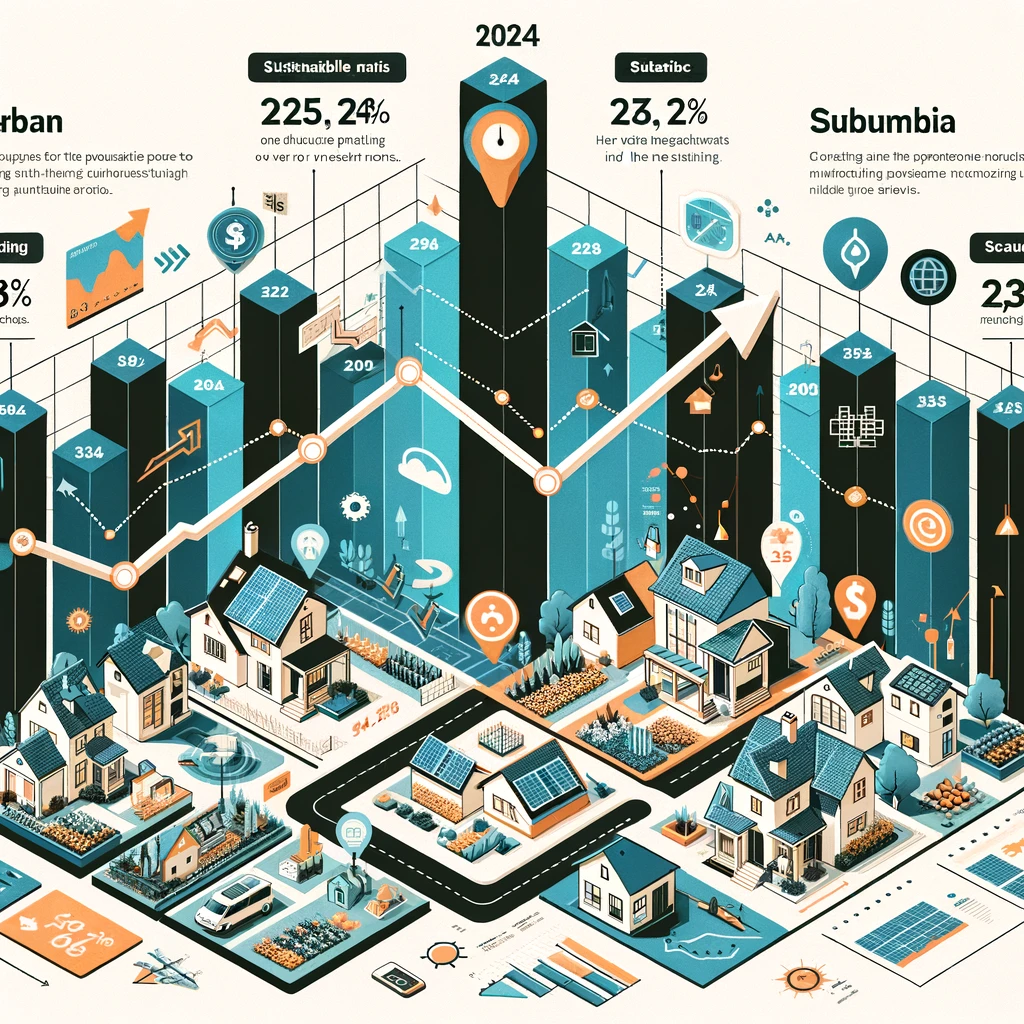

In the dynamic world of real estate, staying informed about market trends is crucial for both buyers and sellers to make educated decisions. The landscape of the market is constantly evolving, influenced by various factors including economic conditions, interest rates, and even societal shifts. This article aims to demystify current real estate market trends, providing a compass for navigating through the complexities of buying or selling property in today's environment.
The Pulse of the Market
2024 has introduced a mix of challenges and opportunities within the real estate sector. A notable trend is the gradual stabilization of housing prices following the volatility seen in previous years. This stabilization is a signal to buyers that the market is becoming more accessible, while sellers need to adjust their expectations and pricing strategies accordingly.
Interest rates have also played a significant role in shaping the market. After the hikes observed in the past, we're now seeing a cautious but noticeable decrease. This shift makes financing a home more attainable for many, potentially increasing the demand for housing and sparking a more vibrant market activity.
Urban vs. Suburban: Shifting Demographics
The pandemic years brought about a significant shift towards suburban living, driven by the desire for more space and a better quality of life outside crowded urban centers. However, as the world adjusts to new normals, there's a slow but steady resurgence in the appeal of urban living, especially among younger demographics. The convenience of city life, coupled with the reopening of offices and urban amenities, is drawing people back to cities. This shift is influencing market trends in both urban and suburban areas, with demand and pricing adjusting accordingly.
The Rise of Sustainable and Smart Homes
Sustainability and technology have become increasingly important to homebuyers. Properties that offer energy-efficient features, smart home technology, and green spaces are not only in high demand but also command higher prices. This trend is a reflection of a broader societal shift towards environmental consciousness and the desire for homes that can adapt to the future.
Investment Opportunities Amidst the Trends
For investors, the current market trends open up various avenues for investment. Residential properties in emerging neighborhoods, especially those showing signs of gentrification, offer promising returns. Additionally, the growing interest in suburban areas presents opportunities for investing in single-family homes or developing new housing projects tailored to the evolving demands of the market.
Navigating the Market
For buyers, the key to navigating the market is to stay informed and flexible. Understanding the trends helps in making strategic decisions, whether it's finding the right moment to buy or choosing a property that aligns with future market shifts. Sellers, on the other hand, need to adapt to the changing landscape by pricing their properties competitively and highlighting features that resonate with today's buyers, such as sustainability and smart technology.
Conclusion
The real estate market is akin to navigating the high seas, where understanding the currents and winds — or in this case, market trends — is essential for reaching your destination successfully. Whether you're buying, selling, or investing, staying informed and adaptable is key. By keeping a pulse on the market trends and adjusting your strategies accordingly, you can make the most of the opportunities that arise in the ever-changing real estate landscape.
Comments